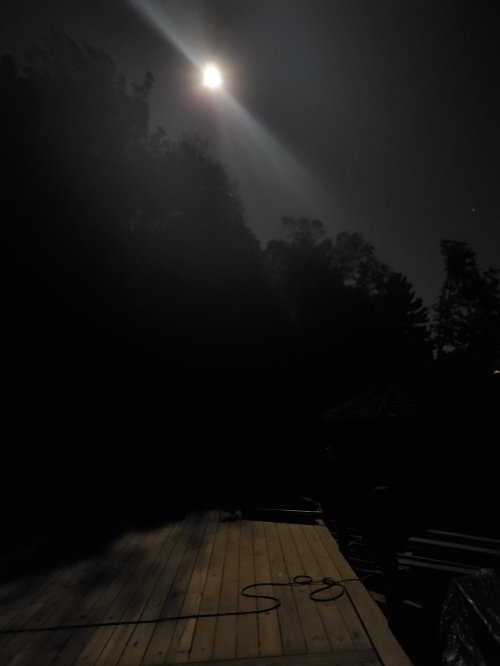
Achilles and Patroclus. By Philippe Auguste Hennequin. 1784-1789.
Grief, I have learned, any type of grief, is a test—albeit a cruel, harsh, and unfair one—of the people around us, those whom we lean on and consider our support system. Grief strips away any pretensions, facades, masks, and posturing and challenges all types of relationships in a way that no other human emotion can. People deal with a grieving loved one in with such a vast range of emotions and reactions—some rise to the occasion to offer support, love, kindness and others back away, withdraw, remain silent.
I’m not making any kind of a judgment here. People are who they are. There is no changing that—for a variety of reasons some are wired to avoid any type of emotions whatsoever, especially the difficult ones. But on the other end of the spectrum there are those who have a special presence, know just the right things to say, and show unconditional love and kindness. I keep thinking about grief-as-test in the last few weeks as I’ve made my way through Louise Glück’s Poems 1962-2012; her insights on loss, grief, pain, heartache, and the everyday difficulties that life throws at us have struck a cord with me. Glück writes about growing up and watching her mother grieve over a lost child and the effects it had on Glück and her sister. Grief as a test of the family, especially the surviving children:
It was something I was good at: sitting still, not moving.
I did it to be good, to please my mother, to distract her from the child that died.
I wanted to be child enough, I’m still the same,
like a toy that can stop and go, but not change direction.
Glück also processes through her poems the death of her father with whom she had a difficult relationship. She writes: “I thought that pain meant I was not loved/it meant I loved.” And her struggles with grief suffered in various romantic relationships, including marriage, are raw, honest and astute. “Seated Figure” has particularly been on my mind, I’ve thought about this poem every day for weeks:
It was as though you were a man in a wheelchair,
your legs cut off at the knee.
But I wanted you to walk. I wanted us to walk like lovers,
arm in arm in the summer evening,
and believed so powerfully in that projection
that I had to speak, I had to press you to stand.
Why did you let me speak?
I took your silence as I took the anguish in your face,
as part of the effort to move—
It seemed I stood forever,
holding out my hand.
And all that time, you could no more heal yourself
than I could accept what I saw.
Although it’s not specifically about grief, I do see it through that lens. Glück wants this man to stand and be in a relationship with her; oftentimes because of grief, pain, heartache we ask someone to stand for us—for support, kindness, patience, love, understanding—and are faced with silence. As Glück says we believe so powerfully in the projection we have of a person that we refuse to accept the reality of who they are and what they are capable of giving us.
Finally, I need to mention Glück’s use of Greek mythology as examples of grief-as-test. She has a series of poems written from the perspective of Penelope, Telemachus, and Circe and how they deal with the grief caused by Odysseus’s absence. Her best poem involves one of the most heart-wrenching examples of grief in ancient literature, Achilles’s reaction to the death of his best friend and fellow warrior, Patroclus:
In the story of Patroclus no one survives,
not even Achilles who was nearly a god.
Patroclus resembles him, they wore the same armor.
Always in these friendships one serves the other,
one is less than the other: the hierarchy is always apparent,
though the legends cannot be trusted— their source is the survivor,
the one who has been abandoned.
What were the Greek ships on fire compared to this loss?
In his tent, Achilles grieved with his whole being
and the gods saw he was already dead,
a victim of the part that loved, the part that was mortal.
Achilles’s grief tests his mortality, his emotions, his fellow soldiers, and an entire Trojan army. The end of the Iliad and Greek’s return home show us the various ways that men on both sides handle that test, for good and bad.
Grief has certainly cast in a new light every relationship that I have now or will have in the future.
Grief as a test.
Of myself.
Of those around me.
Who stands up and who is incapable of standing up?
I’ve even learned that sometimes I’m the one who needs to stand up.
And maybe even walk away…






 In Roman myth the three Fates— Parcae in Latin Moirai in Ancient Greek— are referred to as sisters: Clotho, the youngest, is the spinner of a person’s life thread, Lachesis measures the final thread of life, and the dreaded Atropos cuts the thread of life. Because of their absolute and unpredictable authority over all life—even Jupiter is subjected to their decisions—they are feared and rarely spoken about except in passing references.
In Roman myth the three Fates— Parcae in Latin Moirai in Ancient Greek— are referred to as sisters: Clotho, the youngest, is the spinner of a person’s life thread, Lachesis measures the final thread of life, and the dreaded Atropos cuts the thread of life. Because of their absolute and unpredictable authority over all life—even Jupiter is subjected to their decisions—they are feared and rarely spoken about except in passing references. At the tender age of twenty-one Valéry has his own battle with the passions when he falls in love with an inaccessible woman. He reminisces about it briefly in his Notebooks as a negative part of his life that he would rather forgot. In Cahiers 1, p. 177 he writes, “The past as a chronological and narrative structure has less existence for me than for others. It seems that my being likes to forget what will only be a picture later on—and keep what can be assimilated into itself so completely that it’s no longer a past, but a functional element of virtual acts.” Memory in general is a concept that Valery despises and feels uncomfortable with. The young woman in his poem also expresses anguish over desire and the memories of desire:
At the tender age of twenty-one Valéry has his own battle with the passions when he falls in love with an inaccessible woman. He reminisces about it briefly in his Notebooks as a negative part of his life that he would rather forgot. In Cahiers 1, p. 177 he writes, “The past as a chronological and narrative structure has less existence for me than for others. It seems that my being likes to forget what will only be a picture later on—and keep what can be assimilated into itself so completely that it’s no longer a past, but a functional element of virtual acts.” Memory in general is a concept that Valery despises and feels uncomfortable with. The young woman in his poem also expresses anguish over desire and the memories of desire: Vladimir Mayakovsky had a long, tumultuous affair with Lilya Brik who was married to the poet’s publisher, Osip Brik. The threesome spent a lot of time together, but in 1923, during a two month separation from Lilya, the poet wrote Pro Eto (About this) and dedicated it to her. The poem is full of pain, anger, humor, lust, confusion and torment. In addition to writing about his love affair, Mayakovsky also mixes in his harsh opinions about Lenin and his supposed attempt to implement socialist policies in the Soviet Union. One of the most striking images that he uses in the first part of the poem is that of a telephone. It’s an important symbol for both the separation and connection with his lover. He begins the poem with:
Vladimir Mayakovsky had a long, tumultuous affair with Lilya Brik who was married to the poet’s publisher, Osip Brik. The threesome spent a lot of time together, but in 1923, during a two month separation from Lilya, the poet wrote Pro Eto (About this) and dedicated it to her. The poem is full of pain, anger, humor, lust, confusion and torment. In addition to writing about his love affair, Mayakovsky also mixes in his harsh opinions about Lenin and his supposed attempt to implement socialist policies in the Soviet Union. One of the most striking images that he uses in the first part of the poem is that of a telephone. It’s an important symbol for both the separation and connection with his lover. He begins the poem with:

